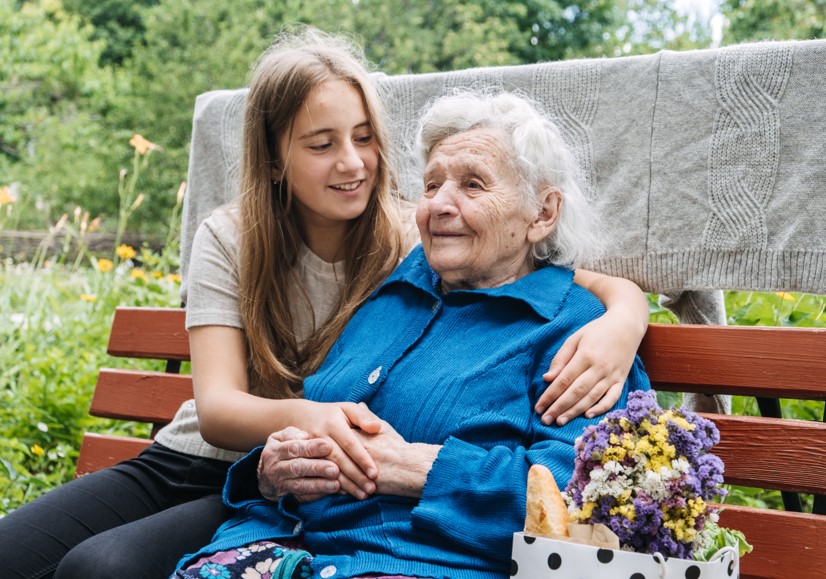Grandparents hold a unique place in our lives, offering wisdom that spans generations. In a world that’s constantly changing, their stories and lessons are a bridge to the past, providing comfort and guidance in ways only they can.
Did you know that studies show children who have close relationships with their grandparents tend to have greater emotional resilience and a stronger sense of identity? From timeless advice on love and patience to practical life skills, grandparents are living legacies of knowledge. And what better way to celebrate this legacy than by engaging in activities that bring families together?
Let’s explore not only the invaluable lessons that grandparents impart but also creative and fun ways for grandchildren to celebrate Grandparents Day—a perfect time to honor these connections and create memories that will last a lifetime.

The Role of Grandparents in Modern Upbringing: How Their Role Has Evolved and Why They Remain Key Figures in the Family
The role of grandparents has evolved significantly in modern society. No longer confined to the stereotype of passive caregivers or distant relatives, grandparents today play dynamic and crucial roles in the upbringing of younger generations. As families face new challenges—such as busier schedules, greater reliance on technology, and changing social structures—grandparents provide something essential: a bridge to the past and a wealth of experience that can help guide children and young adults through life’s complexities.
- A Source of Emotional and Social Stability
Research shows that children who maintain strong relationships with their grandparents tend to experience greater emotional well-being. A 2016 study published in the journal The Gerontologist found that grandchildren who had close relationships with their grandparents reported lower levels of depression and higher levels of life satisfaction as they aged. This connection fosters emotional resilience, offering children a safe, supportive relationship outside their immediate family structure.
Additionally, grandparents often serve as mediators or sounding boards, providing a sense of security in family dynamics. Their life experience allows them to approach conflicts and challenges with wisdom, offering advice that reflects years of learning from both successes and failures. Grandparents often encourage qualities like patience, empathy, and perseverance—values that may be overlooked in a fast-paced, digital-first world. - Cultural and Historical Continuity
Grandparents are vital in maintaining a family’s cultural and historical identity. They pass down traditions, stories, and values that root younger generations in a sense of belonging. A study by the American Psychological Association found that intergenerational transmission of culture, beliefs, and values strengthens not only family bonds but also provides a strong sense of identity for grandchildren. This is particularly important as children grow up in increasingly globalized and multicultural environments, where maintaining a connection to family history can offer a stabilizing influence.
Grandparents often share family stories that provide lessons not found in textbooks. These narratives connect children to a broader sense of history, helping them understand the world in a deeper context. By recounting experiences from different eras—whether it’s surviving hardship, navigating relationships, or achieving personal goals—grandparents offer unique life lessons that enrich the younger generation’s understanding of perseverance, community, and even failure. - An Evolving Role: Beyond Childcare to Mentorship
The role of grandparents has expanded beyond occasional childcare. In many families, they are now seen as mentors, playing an active part in the intellectual and emotional development of their grandchildren. The Pew Research Center reports that nearly 25% of grandparents in the U.S. provide some form of regular caregiving, but their influence extends far beyond that. Grandparents serve as mentors who teach not only practical skills but also provide crucial emotional support that complements the fast-paced lifestyles of modern parents.
Even when they’re not physically present on a daily basis, grandparents foster close relationships through regular communication—whether via phone, video calls, or family visits. These connections allow grandparents to remain engaged in their grandchildren’s lives, offering mentorship that includes guiding them through life’s challenges and helping them develop critical thinking skills through storytelling, problem-solving discussions, or simply listening. - The Importance of Grandparents in Modern Family Dynamics
The evolving role of grandparents in today’s families reflects broader changes in societal structures. With more dual-income households and greater reliance on technology, grandparents offer something uniquely irreplaceable: time and perspective. They slow down the pace, providing the younger generation with the opportunity to reflect, learn, and grow. The advice and stories that grandparents share are rooted in lived experience, offering perspectives that transcend trends or technological shifts.
Moreover, studies have shown that intergenerational relationships offer cognitive and psychological benefits for grandparents as well. In a Boston College study, it was found that grandparents who maintain strong relationships with their grandchildren often experience greater cognitive functioning and report a higher sense of purpose and life satisfaction. These reciprocal benefits underscore the mutual importance of this bond.
In conclusion, the role of grandparents in modern upbringing is far from passive. They offer emotional stability, cultural continuity, and mentorship that shapes the lives of younger generations. While their role has evolved with the times, the lessons they impart remain timeless—grounding families in values, history, and resilience that will carry forward for generations to come.
Intergenerational Activities: Fun and Meaningful Ways for Grandchildren to Celebrate Grandparents Day
Grandparents Day is a wonderful opportunity to not only honor the wisdom and love that grandparents offer, but also to create lasting memories through fun and engaging intergenerational activities. These activities foster deeper connections between grandchildren and grandparents, bridging generational gaps and giving everyone a chance to learn from one another. Below are some creative, fun, and meaningful ways for families to celebrate Grandparents Day, from storytelling to art projects, each designed to be engaging and enjoyable for both young and old.

Family Interviews: Preserving Stories and Wisdom for Future Generations
One of the most enriching ways to celebrate Grandparents Day is through family interviews. This activity allows grandchildren to sit down with their grandparents and ask questions about their life experiences, values, and memories, creating a lasting record of family history. Not only is it a great bonding experience, but it also helps grandchildren appreciate the life lessons their grandparents have learned over the years.
How to organize the interview:
Prepare a list of questions: Before the interview, grandchildren can create a list of questions that they’re curious about. Some examples include:
- “What was your childhood like?”
- “What’s the most important life lesson you’ve learned?”
- “How did you meet Grandma/Grandpa?”
- “What’s your proudest achievement?”
Record the interview: Use a smartphone or a video camera to record the conversation. This turns the interview into a keepsake that can be shared with other family members or even passed down to future generations.
Make it interactive: Don’t just ask questions—grandchildren can share their own stories, too. This makes the conversation feel like a true exchange of experiences rather than a one-way interview.
Recording these stories offers a way to preserve family heritage and keep the connection between generations alive, even as time goes on.
Collaborative Art Projects: Creating Together Across Generations
Art has a unique way of bringing people together, and a collaborative art project is a fantastic way for grandchildren and grandparents to express their creativity while working on something together. Whether it’s painting, drawing, or crafting, the shared process can be a fun and fulfilling experience.
Ideas for collaborative art projects:
- Memory Collage: Grandchildren and grandparents can gather family photos, old letters, and other mementos to create a large collage that tells the story of their family. They can add drawings, stickers, or meaningful quotes to make it truly personal. This project not only sparks conversations about family history but also serves as a beautiful decoration for any home.
- Handprint Art: This simple but meaningful project involves tracing both the grandparent’s and the grandchild’s hands on a large sheet of paper or canvas. They can then paint or decorate the handprints in fun colors. The overlapping prints symbolize the bond between generations, and it becomes a tangible keepsake that can be cherished for years to come.
- Nature Crafts: If you’re looking for an outdoor activity, take a walk in the park or garden and gather natural items like leaves, flowers, or twigs. Once back inside, grandchildren and grandparents can create nature-inspired art by pressing flowers, making leaf prints, or designing wreaths. It’s a creative way to appreciate nature together while crafting something beautiful.
- Paint-by-Numbers Kits: These kits are great for those who may not consider themselves artistic. Grandchildren and grandparents can work side by side, each painting their own part of a larger piece. This activity encourages patience, collaboration, and creates a shared sense of accomplishment.
The beauty of collaborative art is that it’s not about creating a masterpiece; it’s about the joy of the process, spending time together, and reflecting on the final piece as a symbol of their bond.
Recipe Swap and Family Cooking: Sharing Culinary Traditions
Food has a special way of connecting people, and Grandparents Day is the perfect occasion for grandchildren and grandparents to share favorite family recipes and create a meal together. This activity not only provides a delicious result but also a hands-on way for younger generations to learn about family traditions.
Steps for a successful recipe swap and cooking day:
- Choose a family recipe: Grandparents can share a favorite dish that has been passed down through the family. Whether it’s a traditional holiday recipe or a simple comfort food, it’s a great way to share a piece of family history. In return, grandchildren can introduce a modern or favorite dish of theirs to make it an exchange of culinary ideas.
- Cook together: Set up the kitchen with all the necessary ingredients and let the cooking begin! Grandchildren can help with mixing, chopping, or even just keeping the conversation going as the grandparent explains how the dish is made. This is a hands-on learning experience where children can pick up cooking tips while bonding with their grandparents.
- Document the recipe: After the meal, write down the recipe and add any personal notes or memories that were shared during the cooking process. You can even turn it into a mini recipe book, collecting dishes from different family members as a legacy to pass on to future generations.
- Share a meal together: Finally, sit down to enjoy the meal together. Eating something you’ve made together creates a sense of accomplishment and gives grandparents the chance to see their traditions continue to flourish.
Cooking together offers both an opportunity to connect and a way to ensure that cherished family recipes and traditions are preserved for the next generation.
Memory Lane Walk: Revisiting Family History
Taking a literal or figurative walk down memory lane is a wonderful way to celebrate Grandparents Day. For families who live near old family homes or meaningful locations, this can be an actual walk through the neighborhood, visiting places that hold special memories. For those who don’t, a virtual walk using old family photos can work just as well.
How to take a memory lane walk:
- Plan the route: If possible, choose places that were significant in the grandparent’s life—whether it’s the house where they grew up, their old school, or a favorite park. As you walk, encourage grandparents to share stories about these places, making it a personal history tour.
- Create a virtual walk: If visiting in person isn’t an option, gather old family photos and albums. Sit down with grandparents as they describe the people, places, and memories behind the photos. Grandchildren can ask questions about the time period, the family members in the pictures, and the significance of the events captured. This is a great way to keep family history alive and accessible.
- Interactive storytelling: As you go through each memory, encourage grandparents to tell the full story behind it. What did they feel during those moments? How did it shape their lives? This not only deepens the grandchild’s understanding of their family but also enriches the storytelling experience by connecting emotions to the memories.
This simple activity brings history to life and helps grandchildren better understand their roots, fostering a greater appreciation for the experiences that shaped their grandparents.
Time Capsule: Leaving a Legacy for Future Generations
Creating a time capsule is an exciting way for grandchildren and grandparents to leave behind a legacy that can be opened by future generations. This collaborative project encourages both generations to think about what’s meaningful to them and what they would want to share with their future family.
How to create a family time capsule:
- Gather items: Grandchildren and grandparents can work together to collect items that represent the current time and their shared memories. This could include letters, photos, newspaper clippings, small mementos, or even predictions about the future.
- Write letters: Have both the grandparent and grandchild write a letter to their future selves or future family members. These letters can reflect on the present, share hopes for the future, and express their love for each other.
- Choose a container and location: Place all the items in a durable, weatherproof container. Families can choose to bury the capsule in a special spot or simply store it in a safe place to be opened at a later date (e.g., 10 or 20 years from now).
- Make it a family tradition: You can even make this an annual event, adding new items each year to continue documenting the family’s history.
Time capsules offer a way to preserve not just material objects but the emotions and values of today, allowing future generations to open a window into their family’s past.

With Grandparents Day just around the corner on Sunday, September 8th, now is the perfect time to start planning how to make this day extra special. Whether it’s through family interviews, collaborative art projects, or revisiting old family memories, the opportunities to bond and learn from one another are endless. Grandparents offer more than just wisdom—they provide a living connection to family heritage, cultural traditions, and a sense of belonging that transcends generations.
So, this Grandparents Day, take a moment to celebrate the role your grandparents play in your life. Try out some of these intergenerational activities, and don’t forget to reflect on the lessons, stories, and values that make them so important. Whether you’re sitting down for a family meal or creating something beautiful together, the time spent with grandparents is priceless. Celebrate, learn, and create memories with the incredible people who hold a lifetime of wisdom.








